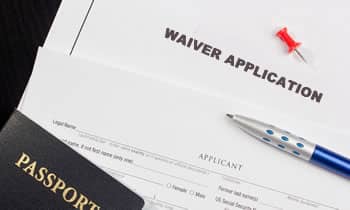
The Provisional Waiver Program
By Maud Poudat | US Immigration Attorney
Posted: August 3, 2016
This summer brings a piece of good news for some of the applicants eligible for the Green Card but have overstayed their visas, therefore were until now ineligible for the Adjustment of Status!
A reform of the Provisional Waiver Program will go into effect on August 29, 2016, enlarging considerably the range of Applicants eligible for the Provisional Waiver Program. This Program allows applicants whose I-130 Petition was approved to apply for a waiver of their inadmissibility while still on the American soil.
What is the Provisional Waiver Program?
A foreign national seeking to obtain Legal Permanent Status (Green Card) through a family relative in the U.S. can either adjust status if present in the United States or apply for an immigrant visa via Consular Processing (if abroad or ineligible to adjust).
In the first case scenario, an individual can adjust status even if he or she has overstayed his or her visa or status provided the individual qualifies as an immediate relative of the petitioning family member (spouse, parent or child of a United States citizen). Meaning that the individual will not have to go back to his or her home country to process the immigrant visa and can remain in the U.S. while waiting for the green card. However, one who has come without inspection (EWI) to this country is ineligible to adjust and must apply for an immigrant visa at the U.S. Consulate in his or her country of nationality or last residence.
In that latter case scenario, the applicant must leave the U.S. in order to attend an immigrant visa interview and obtain such visa. Once the individual departs the United States, a 3 or 10 year-bar will be incurred based on the previous unlawful presence accumulated while in the U.S. without proper visa or status. Such bar will then necessitate the filing and approval of a waiver of grounds of inadmissibility via the immigration service, but this procedure will have to be performed from abroad. Such waiver, if granted, forgives the prior unlawful presence which in turn allows the individual to obtain his or her immigrant visa. This process can last for months, and is extremely stressful to the applicant and his or her relative in the U.S. because there is no guarantee that the applicant will be granted this waiver and thus can not be reunited with his loved ones!
However, since March 4, 2013, the Provisional waiver program allows any immediate relative, who is the beneficiary of an approved immediate relative petition (I-130) but ineligible to adjust status in the U.S. (according to the above) to file a “provisional waiver” application before leaving the United States (Form I-601A) to apply for the immigrant visa. If this waiver is granted before the applicant leaves the country, it insures that this individual will not be barred from entering the U.S. on the basis of his or her past overstay.
In order to be granted this waiver, the applicant had to demonstrate that the denial of his or her immigrant visa will cause extreme hardship to a U.S. citizen spouse or parent.
What will change on August 29, 2016?
The Final rule announced by the US Citizenship and Immigration Services on July 29, 2016, expands the category of beneficiaries eligible for the provisional waiver to “all individuals who are statutorily eligible for a waiver of the unlawful presence grounds of inadmissibility”. Which means that the eligibility for this waiver will be widened to all the individuals falling into the categories of an I-601 Form, and not only the ones pursuant to the I-601A Form.
Thus, all beneficiaries of a visa petition who can demonstrate extreme hardship to a U.S. citizen or LPR spouse or parent may apply for and receive a provisional waiver. The basis for the immigrant visa can be employment-based, family-based, through the diversity lottery or through a special immigrant classification.
USCIS will update its Policy Manual within the following weeks.
This expansion is a tremendous relief to the many applicants who were hesitant to apply for their Green Card through Consular Processing because of the uncertainty of their return on American soil!
Thus, we strongly encourage you to seek advice from an experienced Immigration Lawyer in order to begin your Waiver application: call us to schedule an appointment to check your eligibility with our Board Certified Immigration Lawyer!

